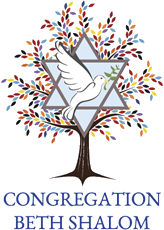Any Yom Kippur in Spokane, Washington, 50 years ago would have found the shul bursting at the seams for Kol Nidre, of course, and for Yizkor. As Yizkor was about to begin, every year an exodus would occur, as all the children and those whose parents were still alive were ushered out of the sanctuary for, what seemed to us, a well-deserved break.
Maybe you had that same experience.
Excluding children from Yizkor was a minhag-shtoot, a bubbemeisa, a silly practice that really made no sense. If children sat in Yizkor, maybe they would pray for their parents to be dead. Maybe the Evil Eye would strike their parents down. Maybe our parents might cry, and children should not see that. All of these were mired in superstition and had no real basis in Judaism.
However, the mass exodus that occurred on Yom Kippur did not happen at the OTHER Yizkor services. Yes, there are OTHER Yizkor services. There are Yizkor services with each of the three Pilgrimage Festivals, the holidays when we traditionally went to Jerusalem – Passover, Sukkot and Shavuot.
The primary purpose of Yizkor was to remember those whom we had lost and to commit ourselves to live our lives as they, in their highest moments, would have wanted to live theirs. Often that was coupled with doing tzedakah, donating to charities that meant the most to our loved ones.
As we as a congregation grow and embrace more families from a wider spectrum of religious practice, it becomes important to observe these special occasions and to endeavor to meet the needs of all of our families.
It is a tribute to the growth and vitality of our young congregation that we are viewed as a welcoming home for people with different religious philosophies.
We welcome diversity in all its many forms and should be proud to serve all those who enter our doors. We are reminded in our liturgy that our doors must always be tall enough and wide enough to admit all Jews.
B’Shalom
Rabbi Stanley Halpern
